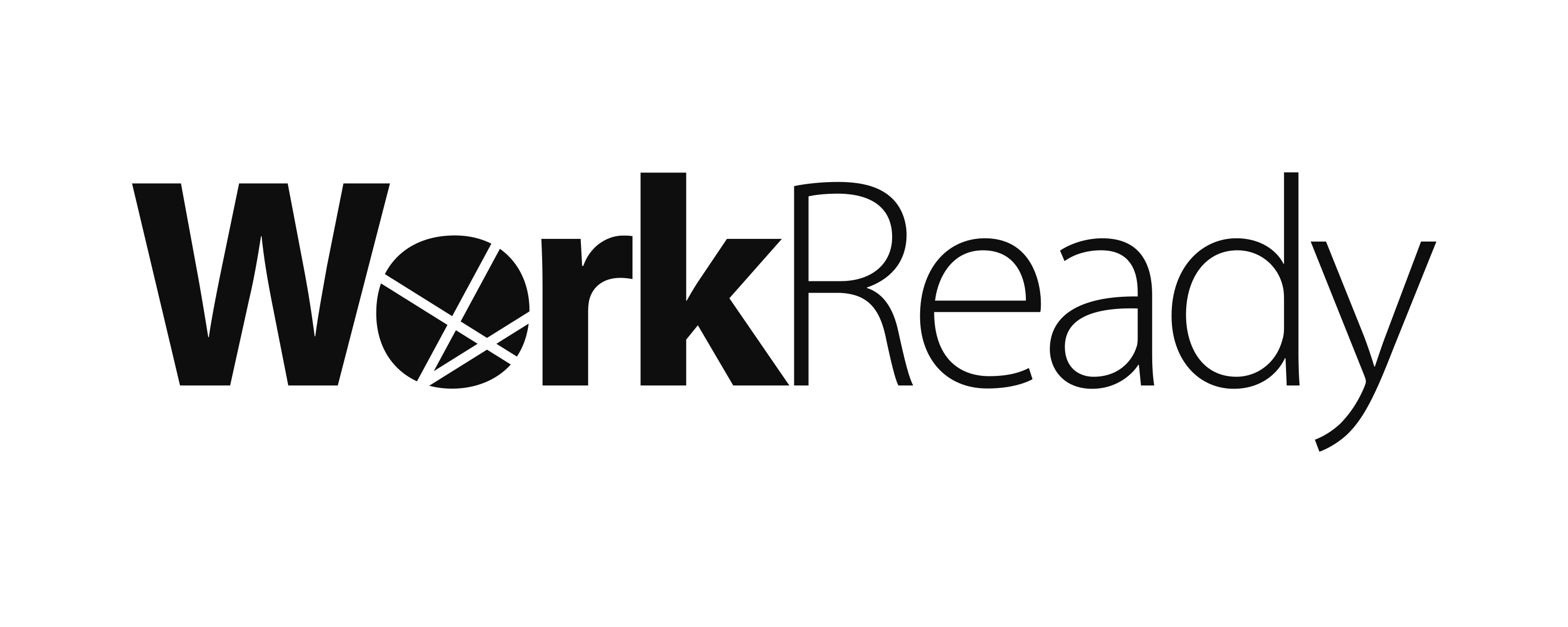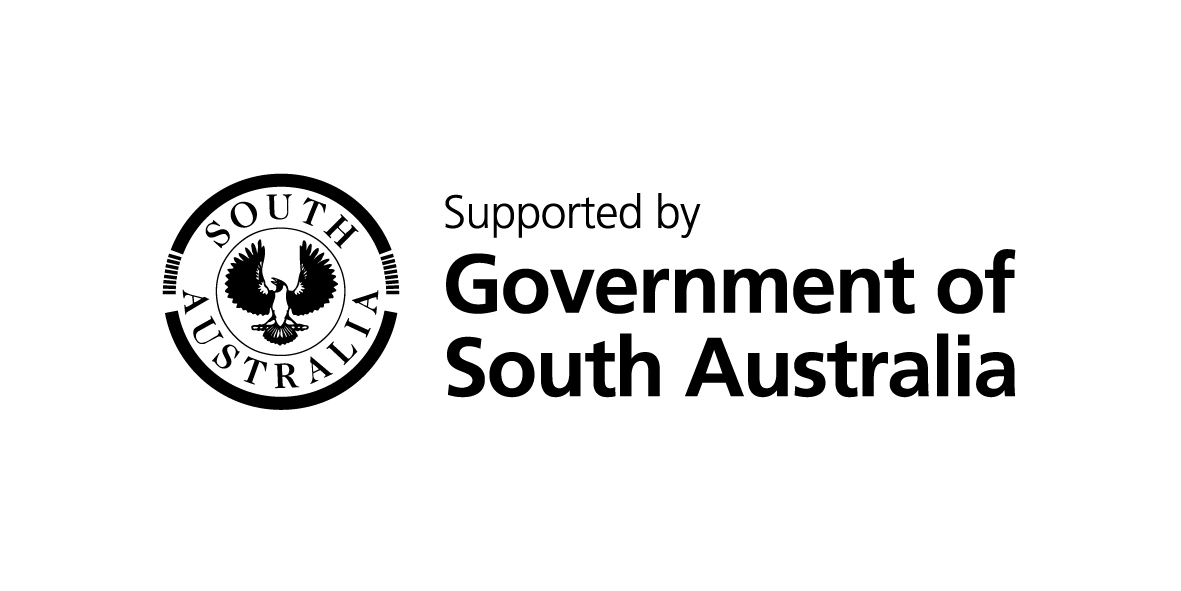Employer Information
Care for children is core
We work in a regulated education and care environment and while education is important it is the care early childhood staff provide that is of most importance to us. When children feel safe, respected and loved they joyously participate in learning.
Our graduates provide care that:
- is safe and supports each child's health and wellbeing,
- provides opportunities and challenges for children to learn and explore their world,
- supports children as individuals that move at their own pace,
- provide inclusive environments where children, families and childcare staff work together,
- implements regulations and strives for the highest quality standards of care and education to be achieved.
Experienced trainers provide the best support
Students learn best from trainers who understand their learning journeys and fully "know" the work environments they are working in. With this in mind all Australian Early Childhood College (AECC) trainers have a rich history of working in the early childhood sector. When selecting staff the core selection criteria for AECC is their experience with, and attitude to, children in a care environment. We do not want trainers who arelooking for a way to escape the child care floor but rather the person who wants to share what they know with others to expand their knowlede while working with children.
All our trainers have current experience within the sector and have all worked within the National Regulations, Standards, Framework and Regulatory requiremnts. They stay up to date with regular work practice and links to local early childhood services, they are talented and experienced educators and leaders, many of whom have been with us for over 10 years.
This means our trainers are very comfortable in services and see visits to workplaces as an opportunity to reconnect with children while they support their students' learning. You will see our trainers working alongside their students helping, modelling, and sharing their years of experience to support the individual needs of each student.
Commitment to workbased learning
Research confirms that online and preservice training does not graduate work ready staff, while work based training and assessment allows skills to be embedded in practices. AECC is committed to workbased learning and has spent the last 20 years continuously improving our processes and procedures. We are so committed to the value of workbased learning that we only enrol students who are working in a regulated service. Most are permanent staff working part or full-time, but some are casuals. All are building their experience in meaningful ways.
Partnerships between trainer and employer
We work with very small services and large national organisations, the core requirement is a workplace that supports the ongoing learning of their staff. This encourages meaningful partnerships between each student, trainer and employer.
Our students are exposed to real interactions and practices while they study, learning and assessment relates to their work and the pedagogy and culture of the individual service.
As staff in a service they learn and practice to real work standards not merely student levels, directed activities target and focuses student skill development.
Mentoring and professional conversations with colleagues and managers supplement this. Theory makes sense as links are drawn to practice, theory now has meaning we know this enhances how people learn and retain information.
Many other programs require only minimal work practice hours Certificate III can be asked to complete only 120 hours pratice and some Diploma programs require only 240 hours.
Time to learn
We recommend minimum training and learning requirements, in line with this most of our students work on average for 12 months to complete CHC30121 Certificate III of Early Childhood Education and Care and 2 years for CHC50121 Diploma of Early Childhood Education and Care. This can vary of course for experienced staff, but this base of 12-24 months is important to provide students with enough time to practice, learn and embed skills, underpinning knowledge and understanding into their practice.
Students graduate with the recommendation from their Manager who confirms the onsistency of their understanding and skills performance.
Why train your own staff
Current practices of hiring staff from other organisations or new graduates from preservice training organisations can, and does, have associated difficulties:
- preservice trained staff generally have little to no real work experience and can require 6-12 months of supervised employment to build skills required to be "work ready"
- work expectations can very greatly
- embedding into the early childhood culture that is your service may not always happen smoothly
- habits brought from other employers ca cause difficulties
By training your own, your work enrionment becomes a learning place and all staff benefit. You have access to a consistent pool of staff building their skills and knowledge while they work.
Contact with trainers is key to successful students
As our program is primarily a "distance program" students are given training programs to support their learning journey and are therefore not expected to attend face-to-face classes. This means students can study in their own time and comfortable surroundings BUT it does not mean they do not need a trainer. Ensuring regular contact with their trainer which in this modern world is best compelted over thephone or skype.
We believe contact for reflection, discussion and introduction of ideas and research is the key to sucess in learning, to support this AECC provides the following supports:
- Phone - we recommend and have trialled a program where it was compulsory for students to contact their trainer every tie they had study. This ensured study time was supported, targeted and thereby more meaningful. AECC ensures a trainer is always available for support between 8.30am and 4.00pm Monday to Friday
- Regular planned visits - for added training discussions, to check on work compelted, observation of skill development. Visits also allow for regular feedback discussions and reporting on progress to student, service manager and lead educators. While visits and thereby face-to-face contact is invaluable it cannot replace the need for more regular contact. We cannot visit daily or even weekly, but students can talk to a trainer every day
- Email/Texts - are generally responded to very quickly, our commitment is within 24 hours Monday to Friday. Students are encouraged to send drafts of their work so support can be provided as they work through tasks.
- Skype - is an increasingly valuable resource, especially with high needs students
Study time is core to the success of any training program and when workplace can support this with some work hours included staff feel valued and supported.
Key Staff
Kylie Tiyce
Chief Relationships Officer
 Kylie supports a team of State based Relationships Coordinators, whose role includes supporting managers, students, trainers and assessors in the programs being implemented. Her role is to ensure the quality of the Australian Early Childhood College's (AECC) program and support you and your trainees to access the most appropriate program. She is the key contact for you to interact with around the progress and quality of the programs that we offer.
Kylie supports a team of State based Relationships Coordinators, whose role includes supporting managers, students, trainers and assessors in the programs being implemented. Her role is to ensure the quality of the Australian Early Childhood College's (AECC) program and support you and your trainees to access the most appropriate program. She is the key contact for you to interact with around the progress and quality of the programs that we offer.
We have over 20 years' experience providing work-based training. We have trained and assessed thousands of students. Many of these students have progressed through Certificate III and Diploma traineeships and then moved into managerial roles such as Centre Managers, 2ICs and Educational Leaders that you may have come across at other services. All AECC trainers and assessors have extensive Early Childhood experience as ex Centre Managers and Educational Leaders. We train and assess many Early Childhood staff each year across NSW, ACT, VIC and SA, working towards organisational goals and vision to provide the best training and performance outcomes for the sector.
We have found that the key to a successful work-based learning program is meaningful contact. While the workplace can replace a classroom setting nothing can replace the importance of the relationships between trainer, student and their mentors. We value the partnership with each Service so training is meaningful and linked to specific directions, strengths and challenges in each Service.
Kylie is here to support you. Some of the ways that she can support you is talking you through the sign-up process for new trainees, offering support around study time strategies that work for you and your team, general support and guidance of trainees and strategizing effective outcomes.
Scott Tiyce
Chief Administrative Officer

Scott supports a team of enrolment officers and Student Support Coordinators whose role includes supporting managers, students and trainers and assessors through the student journey. After your trainee has been signed into their traineeship by the Australian Apprenticeship Support Network (AASN) Scott is notified by the AASN or the State training service. Scott then contacts you at the service to advise that notification has been received and to commence the enrolment process.
The current enrolment process has three steps that the enrolments team go through with each student:
Pre Enrolment - this involves a phone call with the trainee that takes around 3 to 5 minutes.
Enrolment Pack - prior to the COVID risk we would organise a face-to-face visit to your service to meet with the trainee and complete the enrolment that way. To ensure the safety of your staff and families we are currently posting materials to the service and organising a phone appointment to complete the enrolment.
Enrolment Appointment - once the enrolment pack has been recieved we go through the pack with the trainee. This call usually takes 10 to 15 minutes. During this call the program is discussed, the training plan is negotiated, all forms are completed and the importance of actively "working towards their qualification" is discussed.
Once all documentation is received by Head Office a trainer is allocated to support your trainee through their qualification.
Smart and Skilled Course Information
Recognition First is a Smart and Skilled Training Provider. This training is subsidised by the NSW Government. Eligibility criteria apply. You can find out more about this initiative at the Smart and Skilled website or by calling 1300 772 104.
Details of our Approved Qualifications are:
CHC30121 Certificate III in Early Childhood Education and Care
This qualification reflects the role of educators in early childhood education and care who work in regulated children's education and care services in Australia. They support children's wellbeing, and development in the context of an approved learning framework. Educators use a range of well-developed skills and knowledge using discretion and judgement when carrying out their work in the context of established policies and procedures. They may work independently or under the guidance of others, though in some contexts that guidance may not be on-site.
CHC50121 Diploma of Early Childhood Education and Care
This qualification reflects the role of educators in early childhood education and care who work in regulated children's education and care services in Australia. Educators at this level are responsible for designing and implementing curriculum that meets the requirements of an approved learning framewwork and for maintaining compliance in other areas of service operations. They use specilised knowledge and analyse and apply theoretical concepts to diverse work situations. They may have responsibility for supervision of volunteers or other educators.
The links above provide a summary of each qualification. More information about the qualifications and individual units of competency can be found on the national VET register Training.Gov.Au (also known as the TGA).
Australian Early Childhood College is approved to deliver training through the following subsidised program of the NSW Government:
- Smart and Skilled Apprenticeships and Traineeships Program
Some regional areas within New South Wales may have limited subsidised places available.
Smart and Skilled Enrolment Process
The enrolment process for a Smart and Skilled training program involves a number of steps which must be completed. This training is subsidised by the NSW Government.
Under the Australian Consumer Law (ACL), when you buy products and services they come with automatic guarantees that they will work and do what you asked for. The ACL covers refunds, consumer guarantees, unsafe and defective products, purchases using lay-bys and unsolicited consumer agreements with door-to-door sellers or telemarketers. The ACL has been in force across Australia since January 2011 and has brought consistency to consumer law across Australian states and territories.
Australian Early Childhood College are committed to ensuring all students and potential students are provided with a quality training and assessment service and are well informed of their rights as consumers and given a fair avenue for any complaint. If we fail to meet our obligations students can claim compensation for expense incurred as a result of loss or damage.
Choosing the right Registered Training Organisation (RTO) for you can be a confusing process. The RTO that you choose will support and guide you through your chosen qualification. Fair Trading NSW has published on their website recommendations for potential students to undertake before choosing their RTO. Please read these here.
If you have decided that we are the RTO for you then we can begin the steps within the Smart and Skilled Enrolment Process.
1. Student Eligibility
Australian Early Childhood College must ensure that prospective students meet the eligibility criteria before finalising enrolment. The following information is a general guide only, and prospective students can check their eligibility on the "Are You Eligible?" page of the Smart and Skilled website or call 1800 772 104.
Eligibility criteria:
The individual either lives or works in New South Wales, and is:
- an Australian citizen, a permanent Australian resident, a humanitarian visa holder or a New Zealand citizen, and
- be aged 15 years or older, and
- no longer be at school.
Aboriginal and Torres Strait Islander students who do not live or work in New South Wales but live in specific defined interstate New South Wales border areas are eligible for government-subsidised training under Smart and Skilled. For more information please contact the main office.
If you are not eligible for Smart and Skilled funding you have the option of enrolling as a self-funded student. For more information please contact us on 02 4822 7109 or This email address is being protected from spambots. You need JavaScript enabled to view it.
2. Fees and Charges
Australian Early Childhood College must ensure all fees and charges related to the provision of training services are outlined to all parties prior to enrolment. We ensure that we provide information that is clear, accurate and sufficient to enable an informed choice. Fee information for students enrolling in a Smart and Skilled subsidised training program can be found below, and students are encouraged to contact Recognition First for information about fees also:
3. Initial Skills Assessment
Australian Early Childhood College conducts an initial skills assessment comprising of an assessment of Language, Literacy and Numeracy (LLN) skills to ascertain that the proposed training program is appropriate for the student. This is usually done through an initial interview over the phone, but may be carried out face-to-face during an enrolment visit.
4. Recognition
Where a student has extensive workplace experience or has undertaken prior studies in a field related to the current training program they may also be eligible for Recognition of Prior Learning (RPL) or credit transfer. All students are able to apply for RPL - please see our RPL and Credit Transfer page and our ![]() student RPL guide275.36 KB for more information. To be eligible for RPL you need to provide evidence of your skills and knowledge, which can include (but is not limited to):
student RPL guide275.36 KB for more information. To be eligible for RPL you need to provide evidence of your skills and knowledge, which can include (but is not limited to):
- a resume
- a current job description
- copies of training certificates/transcripts
- third party references such as a performance appraisal
- reports and other documents you have developed at work
- confirmation of knowledge through oral assessment interviews
- confirmation of skills through interviewing students' supervisors and managers
For Credit Transfer you will need to provide certified copies of certificates AND a transcript, or a Statement of Attainment, which details the units you previously studied.
5. Training Plan
Information on training and assessment is to be documented in a training plan for all students. The training plan must be developed by the RTO and agreed with the student and employer. The training plan must be consistent with the qualifications or competencies to be attained, consistent with the proposed delivery and assessment strategies, customised as required, for the needs of the employer and the student, and signed and dated by relevant parties.
6. Smart and Skilled Enrolment Form
All students enrolling in a Smart and Skilled subsidised program are required to complete a Smart and Skilled Enrolment Form. Australian Early Childhood College collects your personal information for the purposes of training, assessment, reporting, administration and evaluation of the program you are involved in. Your information, progress and results will be reported to the NSW State Training Authority - Training Services (TS) in the NSW Department of Education and Communities who are responsible for government-funded vocational education and training (VET) in NSW. This information will be held securely and is governed by the Privacy Act 1988.
7. Training and Assessment Program Begins
Once the steps above have been completed the student is ready to begin their training and assessment. Upon meeting eligibility and initial skills assessment requirements students are provided with orientation information and their first training and assessment materials this can be via email, visit or phone, or a combination of any of these three methods. This usually includes (but is not limited to) the following:
- Requirements for Written Assessments
- Cover Sheet
- Australian Early Childhood College contact details and how to contact the office
-
A course outline for the qualification being undertaken
- Training information and assessment instructions for the first unit of cluster
It is very important that students carefully read all the information they have been given when they begin their course as your trainer will assume you have read and familiarised yourself with the above documents and processes.



